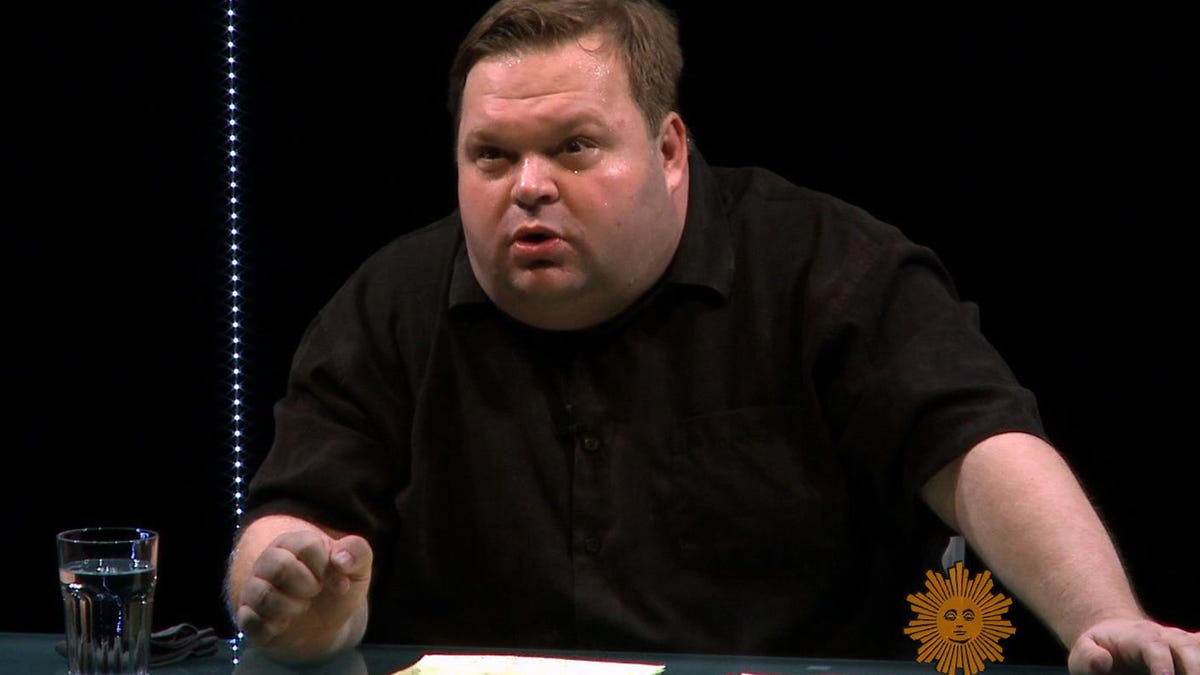Mike Daisey disappears, then reappears
Disgraced Apple commentator briefly disables his Twitter account and takes his public blog private, only to resurrect them as speculation about his disappearance grows.

Disgraced Apple commentator Mike Daisey's new show appears to be a disappearing act -- possibly a recurring one.
The performer, who stars in a one-man play he wrote called "The Agony and the Ecstasy of Steve Jobs," briefly disabled his Twitter account and made his public blog private, as first noted by The Next Web. Daisey has been keeping a low profile after it was revealed in March that he had made up details for his play, which purported to be an eyewitness account of suffering at the factories in China where iPads and iPhones are assembled.
However, after apparently being offline for at least a couple of hours today, his blog and Twitter account were mysteriously resurrected. Efforts to reach Daisey and his publicist, Philip Rinaldi, for comment were unsuccessful.
During his show, which recently closed in New York, Daisey described visiting assembly lines in Shenzhen factories where he said he spoke to workers who were underage, poisoned by toxins, and disfigured by iPad-making machinery. Soon after that report aired, The New York Times published an exhaustive report that profiled hazardous factory conditions linked to scores of injuries and a handful of deaths.
That report created a firestorm of criticism against Apple, one of Foxconn's biggest clients. Apple responded by asking the independent Fair Labor Association to investigate conditions at Foxconn facilities in China.
While some of the conditions Daisey described did exist at some of the facilities making products for Apple, it's unlikely Daisey witnessed them during his trip to China. On March 16, citing "significant fabrications," the makers of the popular public radio program "This American Life" retracted a January episode that featured Daisey's monologue. "Daisey lied to me and to This American Life producer Brian Reed during the fact checking we did on the story, before it was broadcast," Ira Glass, the show's host and executive producer, wrote in a blog post announcing the decision.
Daisey initially defended the play, calling it "a theatrical piece whose goal is to create a human connection between our gorgeous devices and the brutal circumstances from which they emerge. It uses a combination of fact, memoir, and dramatic license to tell its story, and I believe it does so with integrity."
He eventually apologized on his blog for presenting false information as facts.
"When I said onstage that I had personally experienced things I in fact did not, I failed to honor the contract I'd established with my audiences over many years and many shows," Daisey wrote last week. "In doing so, I not only violated their trust, I also made worse art."

